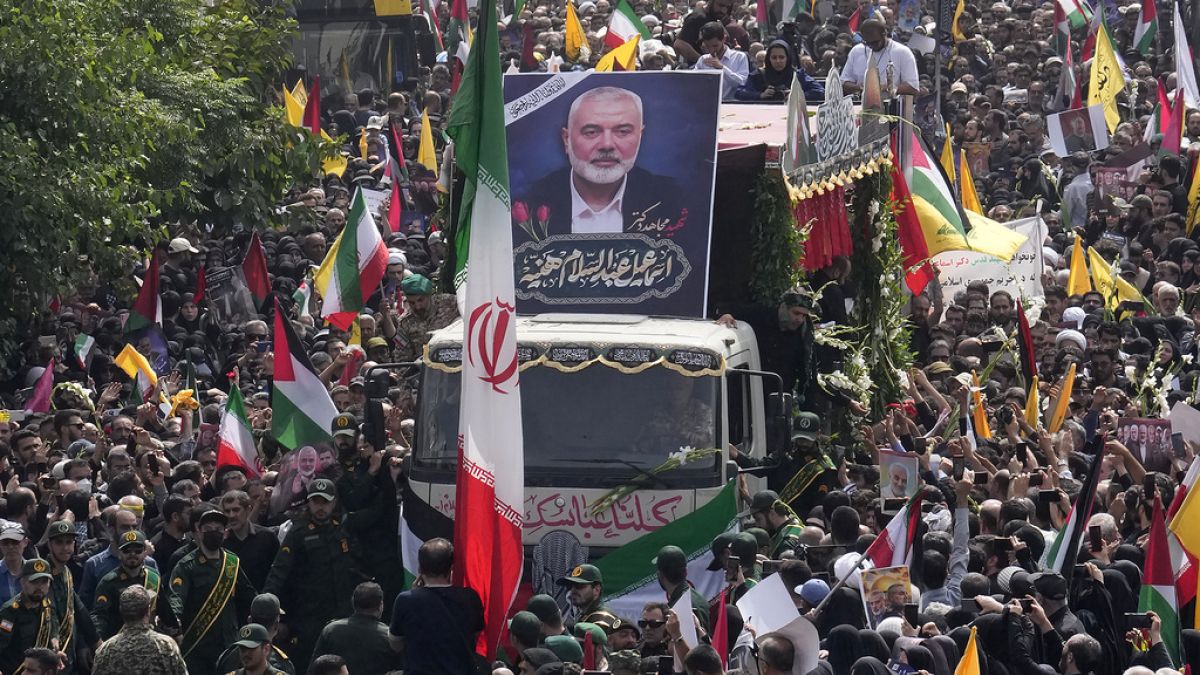The conflict in the Middle East continues to escalate, with recent developments marking a turning point in the ongoing violence. In Qatar, mourners gathered to pay their respects to slain Hamas leader Ismail Haniyeh as Iran and its regional allies vowed to retaliate against Israel. The funeral prayers were attended by senior leaders of Hamas’ Qatar-based political office, including possible successors to Haniyeh. The head of the Palestinian Islamic Jihad also paid his respects, highlighting the unified front against Israel in the region.
The United States has also intervened, with President Joe Biden expressing concern over the escalating violence in the region. Biden stated that the killing of Ismail Haniyeh in Iran has hindered efforts to negotiate a ceasefire in the Israel-Hamas war. Despite this, Biden remains hopeful for a ceasefire and has urged Israeli Prime Minister Benjamin Netanyahu to move quickly to pursue this goal. Netanyahu has emphasized Israel’s determination to achieve “total victory” against Hamas, while also expressing willingness to work towards a ceasefire.
Meanwhile, Hezbollah leader Nasrallah has issued a warning, stating that the conflict with Israel has entered a new phase following the killing of a senior commander in a rare Israeli strike on the Lebanese capital. Nasrallah emphasized that Hezbollah is now engaged in an “open battle on all fronts” and is facing a significant challenge. The killing of Fouad Shukur has escalated tensions between Hezbollah and Israel, setting the stage for further violence and conflict in the region.
The situation in the Middle East remains volatile, with key players such as Iran, Qatar, Hamas, Hezbollah, and Israel all actively involved in the escalating violence. The recent developments, including the killing of Ismail Haniyeh and the Hezbollah commander, have further intensified the conflict and raised concerns about the potential for further violence in the region. The involvement of the United States and President Joe Biden’s efforts to push for a ceasefire indicate a growing international concern over the crisis.
As the conflict in the Middle East continues to escalate, the importance of finding a peaceful resolution becomes paramount. The involvement of key regional players, as well as international actors such as the United States, highlights the complex dynamics at play in the region. Efforts to negotiate a ceasefire and de-escalate tensions are crucial in order to prevent further loss of life and suffering among civilian populations in the war-torn region. The international community must work together to address the root causes of the conflict and find lasting solutions to bring about peace and stability in the Middle East.
In conclusion, the latest developments in the conflict in the Middle East highlight the urgent need for a peaceful resolution to the violence. The involvement of key regional players, as well as international actors, underscores the complex nature of the crisis and the potential for further escalation. Efforts to negotiate a ceasefire and address the root causes of the conflict are essential in order to bring about lasting peace and stability in the region. The international community must work together to support diplomatic solutions and ensure the protection of civilian populations caught in the crossfire of this devastating conflict.










